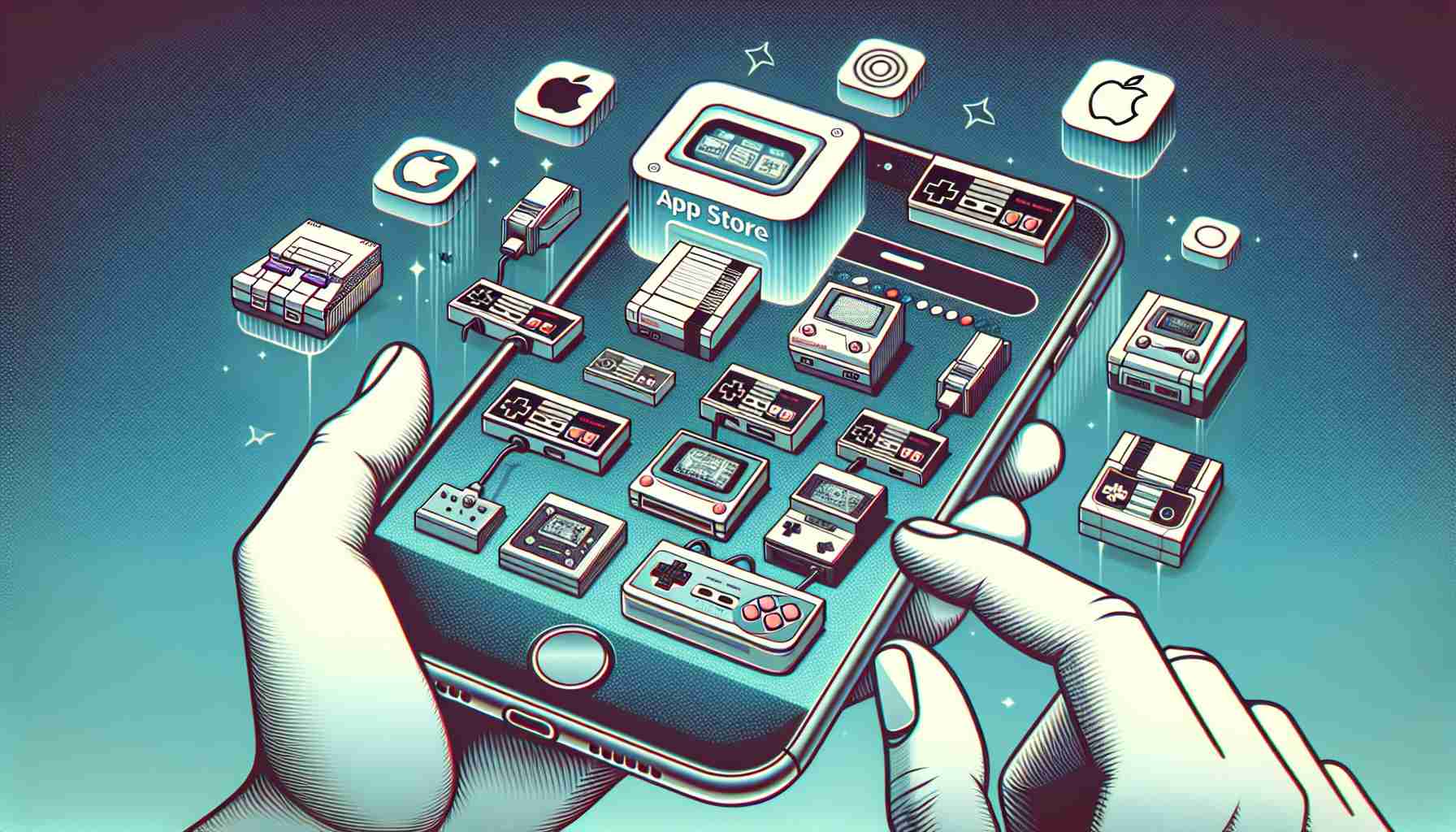Historic App Store Inclusion Paves the Way for Nostalgic Gaming
In what might mark a new era for retro gaming enthusiasts, Apple has shifted its stance, opening its doors to an emulator designed to bring classic Nintendo titles to the iPhone. The change is said to be influenced by the increasing competitive landscape in Europe and the advance of platforms like AltStore.
Emulators Breach Apple’s Walled Garden
In an unprecedented move, Apple, once known for its stringent App Store policies, has allowed the retro gaming emulator Delta into its marketplace. This comes years after Apple co-founder Steve Jobs had highlighted emulation capabilities as key features for Macs, showing that the path to acceptance has been a long journey.
App Launch Defies Expectations Amid Regulatory Changes
Riley Testut and Shane Gill, the brains behind the emulator, were promoting their alternative app store in Europe when they received the news. The policy change by Apple coincided with EU regulations challenging the company’s tight hold over the iOS ecosystem, paving the way for Delta to become available to millions of users.
Delta Fosters a Growing Community of Gamers
Delta’s launch was met with enthusiasm, as it became instantly popular among iPhone users, breathing new life into the gaming community and offering opportunities to re-experience beloved classics. While it competes with offerings from official console manufacturers, the app’s success demonstrates a clear demand for accessible retro gaming.
The Potential for a Legal ROM Marketplace
The implications of Delta’s acceptance could signal a Napster-like moment for ROMs, with the potential for creating a legitimate market for these vintage titles. Game publishers might consider officially selling digital copies of their retro games, affecting how such games are consumed and distributed. As the discussion continues, the gaming community keenly watches to see if this is indeed the dawn of a new standard in gaming history or if publishers will push back on this trend.
Relevant to the topic of emulators in the Apple App Store, it’s important to note that emulation itself is not illegal, but the distribution of copyrighted ROMs without permission is. This means that even though an emulator like Delta may be on the App Store, obtaining the games to use with it may still be a legal gray area.
Key Questions and Answers:
Q: Why has Apple historically been opposed to emulators in the App Store?
A: Apple has maintained strict control over its App Store to ensure quality, security, and to uphold its agreements with content creators and rights holders. Emulators can be used to play games that users have not necessarily purchased from an authorized source, potentially infringing on copyright laws.
Key Challenges or Controversies:
The inclusion of emulators in the App Store presents several challenges and controversies:
– Potential copyright infringement issues if users download pirated ROMs.
– The impact on the sales and reputation of Apple’s partnership with game developers and console manufacturers.
– Possible legal challenges from game publishers against the distribution of emulators and ROMs.
Advantages:
– Accessibility to classic games is significantly improved for iPhone users.
– Preservation of retro games becomes more mainstream, allowing new generations to experience classic titles.
– Boosted interest in retro gaming could lead to increased revenue from legitimate sources if publishers decide to sell their old games digitally.
Disadvantages:
– It could encourage the spread of illegally distributed ROMs.
– It might damage relationships between Apple and some game developers or publishers.
– There could be potential legal issues for Apple if game publishers decide to take action against emulation.
For up-to-date information on Apple’s policies and any changes to the App Store, one can go to Apple’s official website: Apple.
To learn more about the EU regulations that may have influenced this change in policy, one can look at the official European Union website: European Union.
To explore more about copyright law as it pertains to video games and ROMs, one might visit the World Intellectual Property Organization (WIPO) website: WIPO.
The source of the article is from the blog karacasanime.com.ve
